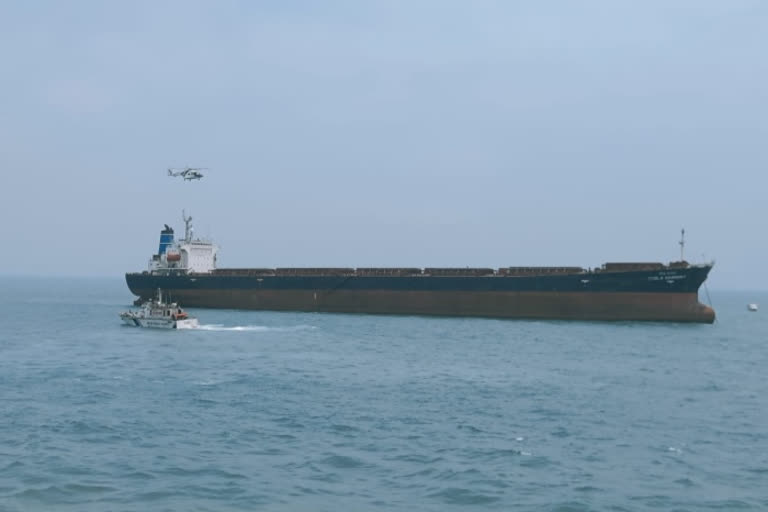Kolkata: In a sea-borne strike, terrorists took control of a large bulk carrier anchored off the Paradip Port in Odisha. The crew of the ship, including the Master, are being held hostage in the bridge of the ship. The terrorists have placed their demands. If they are not met, the ship and the crew will be blown up, the terror outfit behind this attack has stated. Apart from the loss to human life, the blast will cause oil spillage along the Odisha coast, endangering marine species, including the endangered Olive Ridley turtles that migrate there from thousands of nautical miles away to roost and lay eggs.
The authorities do not press the alarm button to prevent panic and information about impending operations from reaching the terrorists. Indian Coast Guard Dhruv-III helicopters hover around the ship, providing live footage of the situation onboard to commandos preparing for a raid. The helicopters are also a distraction for the terrorists who expect a heli-borne rescue attempt. There is a lot of chatter on the radio. The panic-stricken terrorists keep on repeating their threats and demand that the helicopters move away. Calm and composed voices from the other end just ask them to lay down their arms and surrender. While all this happens, marine commandos have already boarded the ship and neutralising any explosives that may have been placed.
After ensuring that the ship can no longer be blown up, it takes a few minutes for the commandos to eliminate the terrorists onboard and rescue the crew unscathed. Blue Team wins. This was one of the simulations carried out by the Indian Coast Guard (ICG) between Wednesday morning and Thursday evening along the Odisha coast as part of Ex Sagar Kavach. This was a real-life situation where the lives of seafarers (some of them from abroad) were at stake. Evaluations on whether all procedures were followed will be taken up by a team of independent observers. Their recommendations will help tighten security along India's coastline.
